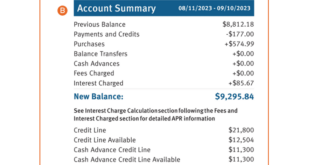Credit Card Fraud Protection: Safeguarding Your Finances
In our increasingly digital world, credit card fraud has become a serious concern. With the rise in online shopping and digital transactions, protecting yourself from fraud is more important than ever. This article will delve into effective strategies for credit card fraud protection, helping you safeguard your finances and personal information.
Understanding Credit Card Fraud
Credit card fraud occurs when someone uses your credit card information without your permission. This can happen through various methods, including phishing, skimming, or data breaches. Understanding how fraud occurs is the first step toward protecting yourself.
Common Types of Credit Card Fraud
- Card-not-present fraud: This type occurs when the card is not physically present during a transaction, often seen in online purchases.
- Card-present fraud: Involves the physical theft of a card or its details to make unauthorized purchases.
- Account takeover: When a fraudster gains access to your credit card account and makes unauthorized charges.
- Phishing: Scammers use fake emails or websites to trick you into providing your credit card information.
The Importance of Credit Card Fraud Protection
With millions of cases reported each year, understanding the importance of credit card fraud protection is crucial. Not only can fraud lead to financial loss, but it can also damage your credit score and create significant stress.
Financial Impact of Credit Card Fraud
The financial implications can be devastating. Victims often face unexpected charges, and it may take time to recover funds or restore credit scores.
Emotional and Psychological Toll
The stress of dealing with fraud can affect mental well-being. Victims may experience anxiety, fear, and frustration, leading to a diminished sense of security regarding financial transactions.
Effective Credit Card Fraud Protection Strategies
1. Monitor Your Statements Regularly
Regularly checking your credit card statements helps identify unauthorized transactions early. Report any suspicious activity to your card issuer immediately.
2. Set Up Alerts
Most credit card companies offer alert features that notify you of transactions. Set up these alerts to stay informed about your account activity.
3. Use Strong Passwords
Create complex passwords for your online accounts, combining letters, numbers, and symbols. Avoid using easily guessed information like birthdays or names.
4. Enable Two-Factor Authentication (2FA)
Two-factor authentication adds an extra layer of security. Even if someone obtains your password, they would need a second form of verification to access your account.
5. Secure Your Devices
Ensure that your computer and smartphone have updated antivirus software. Regularly update your operating system and applications to protect against vulnerabilities.
6. Be Cautious with Public Wi-Fi
Avoid accessing sensitive financial information over public Wi-Fi networks, as they can be insecure. If necessary, use a Virtual Private Network (VPN) for added security.
7. Shred Personal Documents
Before disposing of credit card statements or other personal documents, shred them to prevent identity theft.
8. Use Credit Over Debit
Credit cards typically offer better fraud protection than debit cards. In case of unauthorized transactions, your liability is often limited.
9. Review Your Credit Report Regularly
Obtain a free credit report annually and review it for any inaccuracies or unfamiliar accounts. Dispute any errors immediately.
10. Report Lost or Stolen Cards Immediately
If your credit card is lost or stolen, report it to your issuer immediately to prevent unauthorized charges.
FAQs About Credit Card Fraud Protection
- What should I do if I suspect credit card fraud?
- Contact your credit card issuer immediately to report the fraud.
- How can I prevent credit card fraud?
- Regularly monitor your accounts, use strong passwords, and enable two-factor authentication.
- Will I be responsible for fraudulent charges?
- Under federal law, you are typically only liable for up to $50 if you report the loss in a timely manner.
- Can I recover lost money from fraud?
- Many credit card companies offer fraud protection and may reimburse you for unauthorized charges.
- How often should I check my credit report?
- You should review your credit report at least once a year.
- Is it safe to shop online?
- Yes, but ensure you use secure websites (look for “https://” in the URL) and monitor your accounts.
- What is skimming?
- Skimming is the theft of credit card information using a small device that reads the card’s magnetic strip.
- Can identity theft affect my credit card?
- Yes, identity theft can lead to unauthorized charges on your credit card.
- Should I use a credit card or a debit card for online purchases?
- Credit cards typically offer better protection against fraud than debit cards.
- What is phishing?
- Phishing is a fraudulent attempt to obtain sensitive information by pretending to be a trustworthy source.
Conclusion
Credit card fraud protection is essential in today’s digital age. By implementing effective strategies and remaining vigilant, you can safeguard your financial health and protect your personal information from fraudsters.
Adopting proactive measures, such as monitoring your accounts and using secure online practices, is vital for reducing your risk of falling victim to credit card fraud. Remember, the best defense against fraud is prevention, so stay informed and take action to protect yourself.
By staying educated about the various forms of fraud and the methods to protect against them, you can ensure that your financial transactions remain secure. Being proactive about your credit card security will empower you to use your cards confidently, knowing you have taken the necessary steps to mitigate risk.
 Gerbang Finance
Gerbang Finance

